
JOURNAL OF EXTENSION
Scope & Guideline
Bridging Research and Practice in Education.
Introduction
Aims and Scopes
- Extension Education and Outreach:
The journal publishes work that enhances the effectiveness of extension programs, focusing on strategies that promote community engagement and education. - Health and Nutrition Education:
A significant portion of the journal's articles addresses health, nutrition, and wellness initiatives, showcasing programs aimed at improving dietary habits and health outcomes in various populations. - Sustainable Practices and Environmental Stewardship:
Research related to sustainable agricultural practices, environmental conservation, and resource management is frequently highlighted, reflecting the journal's commitment to promoting ecological awareness. - Youth Development and 4-H Programming:
The journal places a strong emphasis on youth development initiatives, particularly through 4-H programs, exploring innovative approaches to engage and educate young people. - Community and Economic Development:
Contributions often focus on enhancing community resilience and economic vitality through extension efforts, including case studies of successful programs and initiatives. - Technology in Extension:
The incorporation of technology, such as virtual platforms and social media, in extension education is a growing focus, reflecting the evolving landscape of communication and education. - Diversity, Equity, and Inclusion:
The journal is dedicated to exploring themes around diversity, equity, and inclusion within extension programming, addressing barriers and strategies for effective outreach.
Trending and Emerging
- Generative AI and Technology Integration:
Recent articles explore the implications of generative AI and other technologies in extension education, indicating a growing recognition of digital tools in enhancing outreach and engagement. - Mental Health and Well-Being in Extension Programs:
There is an increasing emphasis on mental health and well-being, particularly in the context of supporting volunteers and community members, reflecting a broader societal focus on mental health issues. - Nutrition Education for Diverse Populations:
Emerging themes include tailored nutrition education programs aimed at diverse and underserved populations, highlighting the importance of inclusivity in health initiatives. - Citizen Science and Community Involvement:
The rise of citizen science approaches in extension programming showcases an emerging trend toward involving community members directly in research and data collection. - Resilience and Adaptive Practices in Agriculture:
A growing body of work focuses on resilience and adaptive practices in agriculture, particularly in response to climate change and economic challenges, indicating a shift towards sustainability. - Collaborative and Cross-Sector Partnerships:
There is a noticeable trend towards fostering collaborations across sectors, emphasizing partnerships that enhance the effectiveness and reach of extension initiatives.
Declining or Waning
- Traditional Agricultural Practices:
Research centered on conventional agricultural methods seems to be less frequently published, possibly indicating a shift towards more innovative and sustainable practices. - Single-Discipline Focus:
There is a noticeable decline in studies that concentrate solely on one discipline without interdisciplinary approaches, as the journal increasingly emphasizes integrated and holistic solutions to complex issues. - Generalized Community Engagement:
While community engagement remains important, there appears to be a waning focus on generalized engagement strategies, with a shift towards more targeted and specific community needs assessments. - Static Educational Models:
The journal has seen fewer contributions discussing static or traditional educational models, as the focus moves toward dynamic and innovative pedagogical strategies. - Limited Scope of Evaluation Methods:
Articles employing traditional evaluation methods without incorporating newer, more participatory approaches are less common, reflecting a trend towards enhanced evaluation strategies.
Similar Journals

Rural Extension and Innovation Systems Journal
Connecting Researchers and Practitioners for Impact.Rural Extension and Innovation Systems Journal, published by the Australasia Pacific Extension Network (APEN), is a premier platform dedicated to advancing knowledge and practice in the field of rural extension and innovation systems. With the ISSN 2204-8758 and E-ISSN 2204-8766, this journal aims to bridge the gap between theory and practice by disseminating high-quality research that addresses the unique challenges faced by rural communities. The journal's open access policy facilitates the broadest possible dissemination of scholarly work, ensuring that insights into rural development, innovative agricultural practices, and sustainable resource management reach a global audience. By fostering collaboration among researchers, practitioners, and policymakers, the Rural Extension and Innovation Systems Journal plays a pivotal role in promoting effective extension services and enhancing the overall well-being of rural populations. With an increasing focus on the role of innovation in rural development, this journal is essential for anyone looking to explore, contribute to, or stay informed about the latest trends and developments in this vital area.
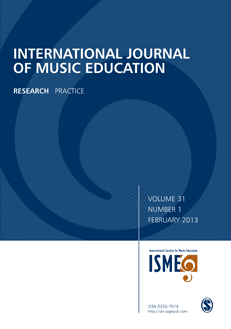
International Journal of Music Education
Championing research that resonates in classrooms worldwide.The International Journal of Music Education is a premier academic platform published by SAGE Publications Ltd, dedicated to exploring the interdisciplinary intersections of music and education. With its ISSN 0255-7614 and E-ISSN 1744-795X, this esteemed journal has been contributing significantly to the field since 1996 and will continue to do so through 2024, underscoring its commitment to advancing scholarly discourse in music pedagogy. It boasts impressive ranking metrics, including Q1 status in Music and Q2 in Education as of 2023, reflecting its influence within these domains. Ranked #10 out of 180 in Music (94th percentile) and #501 out of 1543 in Education (67th percentile) by Scopus, the journal is acknowledged for its rigorous peer-reviewed articles that address contemporary issues, innovative teaching strategies, and the role of music in learning environments. Although it does not offer open access, researchers, professionals, and students are encouraged to engage with its comprehensive research findings, ensuring the advancement of both music education and the broader arts landscape.
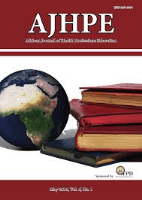
African Journal of Health Professions Education
Shaping Tomorrow's Healthcare LeadersAfrican Journal of Health Professions Education (ISSN: 2078-5127, E-ISSN: 2078-5127), published by HEALTH & MEDICAL PUBLISHING GROUP, is a premier open access journal dedicated to advancing the field of health professions education across Africa and beyond. Launched in 2009, this journal provides a platform for sharing innovative research, pedagogical practices, and policy developments that enhance educational methodologies in healthcare-related disciplines. With its commitment to accessibility, the journal facilitates the dissemination of knowledge to researchers, practitioners, and students alike, thereby contributing significantly to the improvement of health outcomes through effective education. The journal's scope encompasses various areas, including curriculum development, assessment strategies, and the integration of technology in health professions education, making it an invaluable resource for anyone engaged in health education research and practice.

Medical Science Educator
Advancing methodologies for a brighter medical education.Medical Science Educator, published by SpringerNature, is an esteemed journal committed to advancing the intersection of educational methodologies and medical science. With a significant impact in its field, this journal holds a Q2 ranking in both Education and Medicine (miscellaneous) categories as of 2023, reflecting its dedication to high-quality research and scholarly dialogue. Operating in a digital format, the journal uniquely facilitates access to pivotal studies from its inception in 2011 until 2024, fostering innovation in medical education. The latest rankings highlight its credibility, placing it at the 63rd percentile in Social Sciences - Education and the 56th percentile in Medicine - Medicine (miscellaneous) within Scopus. This platform serves as an invaluable resource for educators, researchers, and practitioners aiming to enhance teaching practices and shape the future of medical education.
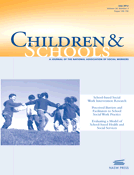
Children & Schools
Bridging education and social health for children's success.Children & Schools, published by Oxford University Press, serves as a vital academic journal that bridges the fields of education and social health, demonstrating its importance in addressing the multifaceted challenges facing children in educational settings. With an ISSN of 1532-8759, this journal is committed to disseminating high-quality research from 1978 to the present, marking its influential position as a Q2 ranked journal in both Education and Health (social science) categories as of 2023. The journal's engaging content reflects its dedication to advancing knowledge and practice within these critical areas, appealing to researchers, educators, social workers, and policymakers alike. It is especially noted for its accessibility through robust scholarly contributions, making it a pivotal resource for understanding the developmental and social needs of children in schools. As a member of the Scopus rankings, boasting a 70th percentile in Education and a 63rd percentile in Health (social science), Children & Schools remains essential for advancing research and best practices in nurturing the educational environment for children.
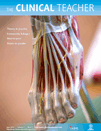
Clinical Teacher
Cultivating Knowledge for Future PractitionersThe Clinical Teacher is a leading journal published by WILEY, dedicated to fostering excellence in medical education and enhancing the skills of healthcare educators. With an ISSN of 1743-4971 and an E-ISSN of 1743-498X, this esteemed publication has gained recognition for its practical insights and innovative approaches, particularly in the realms of Teaching and Assessment within the medical field. Since its inception in 2006, it has maintained a notable impact within its categories, ranking Q3 in Medicine (miscellaneous) and an impressive Q1 in Review and Exam Preparation as of 2023. The journal's commitment to advancing educational practices is reflected in its exceptional Scopus ranking of #1 in the Nursing Review and Exam Preparation category, placing it in the 87th percentile of its peers. Although not open access, The Clinical Teacher serves as an invaluable resource for researchers, educators, and healthcare professionals focused on improving the learning experiences of future medical practitioners. With continued contributions from eminent figures in the field, this journal stands as a vital platform for the dissemination of knowledge and the evolution of teaching methodologies in clinical settings.
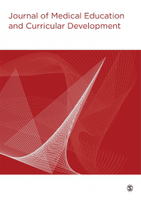
Journal of Medical Education and Curricular Development
Exploring Cutting-Edge Strategies in Medical TrainingJournal of Medical Education and Curricular Development is a pioneering open-access journal published by SAGE Publications Ltd, dedicated to advancing the field of medical education. With an ISSN of 2382-1205, this journal has been committed to providing high-quality, peer-reviewed research since 2014. It serves as a vital platform for educators, researchers, and practitioners interested in innovative teaching methodologies, curriculum development, and assessment strategies in medical education. The journal not only aims to disseminate impactful research but also encourages scholarly dialogue on best practices and emerging trends in the field. By offering unrestricted access to published articles, it ensures that knowledge is widely accessible, promoting collaboration and improvement in medical training worldwide. As a key resource for professionals and academics alike, it supports the ongoing evolution of educational practices that directly influence healthcare outcomes.
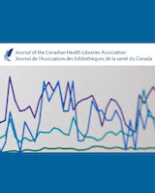
Journal of the Canadian Health Libraries Association
Exploring critical issues in health libraries and information sciences.The Journal of the Canadian Health Libraries Association is a pivotal open-access journal dedicated to advancing the field of health librarianship and information sciences. Published by the Canadian Health Libraries Association, this journal has been fostering the dissemination of innovative research and practices since its inception in 2004. With a focus on critical issues in library and information sciences as well as miscellaneous medicine, it has achieved commendable rankings, noted as Q2 in Library and Information Sciences and Q3 in Medicine (miscellaneous) as of 2023. The journal serves as a vital platform for health librarians, researchers, and practitioners in Canada and beyond, providing valuable insights and fostering collaborations in an ever-evolving information landscape. With its address based in Thunder Bay, Ontario, Canada, and an ISSN of 1708-6892, the journal invites contributions that aim to enhance understanding and improve practices within the health information sector, making it an essential resource for anyone engaged in health libraries and information management.
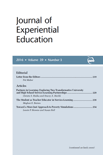
Journal of Experiential Education
Shaping Tomorrow's Educators TodayJournal of Experiential Education, published by SAGE Publications Inc, stands as a pivotal resource in the field of education, focusing on innovative pedagogical strategies and experiential learning methodologies. With an ISSN of 1053-8259 and an E-ISSN of 2169-009X, this journal is recognized for its rigorous academic contributions, holding a commendable Q2 category ranking in Education for 2023, and securing a Scopus ranking of #495 out of 1543, placing it in the 67th percentile for social sciences education. The journal's scope encompasses diverse aspects of experiential education, essential for researchers, educators, and practitioners looking to enhance learning outcomes through practical application. With a history spanning from 1996 to 2024, it continues to foster dialogue and disseminate groundbreaking research that addresses contemporary educational challenges. Although it does not currently offer Open Access options, the journal's impact and relevance remain significant, making it indispensable for advancing knowledge in the education sector.
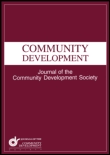
Community Development
Empowering Communities Through ResearchCommunity Development is a premier academic journal published by ROUTLEDGE JOURNALS, TAYLOR & FRANCIS LTD, focusing on the dynamic fields of geography, planning, sociology, and political science. With an ISSN of 1557-5330 and an E-ISSN of 1944-7485, the journal champions interdisciplinary research aimed at addressing prevalent issues in community development, policy-making, and sustainable practices. Currently situated in the United Kingdom, it holds a prestigious reputation, reflected in its Q2 ranking in both Geography, Planning and Development and Sociology and Political Science categories for 2023, indicating its significant influence and relevance in these academic fields. With a Scopus ranking that positions it in the top quartile of relevant journals, Community Development serves as an indispensable resource for researchers, professionals, and students who seek to engage deeply with contemporary challenges and innovations in community dynamics from 2010 through to 2024. By fostering impactful research and dialogue, it plays a crucial role in shaping the future of community development practices and policies.